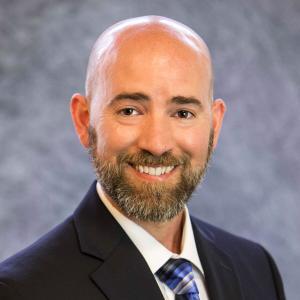
Jason Mercier of the Washington Policy Center offers an update of the capital gains income tax case in Washington state
Jason Mercier
Washington Policy Center
Though we are still waiting for the state supreme court to set oral arguments in the capital gains income tax case, two new briefs were filed by plaintiffs yesterday. One brief responded to the state’s claim that Washington had somehow found a new way to tax capital gains that didn’t make it an income tax (every other state and the IRS unequivocally say that a capital gains tax is an income tax). The other brief addressed the Washington Education Association’s demand that the court now rule that income isn’t property so that a graduated income tax could be imposed without a constitutional amendment.

Here are a couple of quotes from the brief responding to the Attorney General:
- “The capital gains tax enacted by the Washington Legislature does not withstand constitutional scrutiny. The State attempts to save the capital gains tax by recasting the nature and structure of the tax and appealing to policy interests. However, as long ago recognized by this Court, ‘[i]t is not the function of this court in cases like this to consider the propriety of the tax, or to seek for the motives or to criticize the public policy which may have prompted adoption of the legislation.’”
- “The tax is not imposed on the activity of selling or exchanging long-term capital assets, as the State contends. It is imposed on the recognition of capital gains, i.e. income, for which the State confers no right or privilege.”
I particularly enjoyed these quotes in the brief responding the WEA:
- “Washington Constitution has been repeatedly reaffirmed and ratified by Washington’s voters, who have rejected six proposed constitutional amendments that would have excluded ‘income’ from the Constitution’s definition of ‘property,’ and four ballot measures that would have imposed an income tax without amending the Constitution.”
- “At most, Intervenors disagree with the settled tax law of the State. Their disagreement is properly aired not in this Court, but through the popular electoral process—in which, to date, the voters have overwhelmingly opted to preserve Culliton. The Court should therefore decline Intervenors’ remarkable invitation (not joined by the State) to wholly overturn the state’s constitutional regime with respect to taxation of income and should respect stare decisis under this Court’s controlling precedents.”
- “The Intervenors ask this Court not only to overrule its own precedents, but to substitute its judgment for the will of Washington’s people. Since constitutional Amendment 14 was passed in 1930, large margins of Washington voters have rejected six attempts to amend the constitution to pave the way to graduated taxes on income. Over roughly the same period, Washington voters also rejected four statewide votes to codify an income tax by statute.”
- “In addition to blithely eliding these critical differences in constitutional language, Intervenors also conveniently ignore that many states enacted constitutional amendments that expressly permitted income taxes—an effort Washington voters were asked to approve but rejected both at the time and many times since. See Jason Mercier, Washington’s constitution has broadest definition of property in the country, Washington Policy Center (Aug. 29, 2022)”
- “Intervenors ask the Court to redefine income as ‘something in motion, something that can either cease moving and itself become an income-producing asset (i.e., ‘property’) or that can alternatively be consumed and disappear.’ The Court should decline these metaphysical musings on the nature of income and retain established constitutional law that has been applied for nearly a century.”
- “And they are doing so in a context where the challenged constitutional rule has been repeatedly sustained by the voters whose reliance is at stake. In a democratic society organized under a constitutional government of limited powers, the Court should not sanction that effort. If sentiment about taxes on income has changed, it is the voters who must express a will to change their Constitution through an initiative.”
- “Notwithstanding this alleged regressivity, in 2022, the TSWG recommended that the state not include a statewide income tax as a tax policy option. Across all groups, ‘respondents did not feel that taxing income would be fairer than solely taxing retail spending and home value,’ and in particular, many people of color felt an income tax would be less fair. Given the historic opposition to income taxes in Washington over the last century, the strong message citizens sent to the Tax Structure Work Group does not support the assertions made by Intervenors about the ‘need’ for taxing income to redress regressivity, and directly rebuts Intervenors’ unfounded contentions about support for income taxes among ‘less well-off or marginalized communities.’”
According to the clerk for the state supreme court the oral arguments for this case “will most likely be set in the Winter term.” Reply briefs from the Attorney General and WEA will be due in about a month.
Jason Mercier is the director of the Center for Government Reform at the Washington Policy Center.
Also read:
- POLL: Why did voters reject all three tax proposals in the April 22 special election?Clark County voters rejected all three tax measures on the April 22 special election ballot, prompting questions about trust, affordability, and communication.
- Opinion: The war on parental rightsNancy Churchill argues that Olympia lawmakers are undermining voter-approved parental rights by rewriting key legislation and silencing dissent.
- Opinion: An Earth Day Lesson – Last year’s biggest environmental victories came from free marketsTodd Myers argues that Earth Day should highlight free-market solutions and grassroots innovation as more effective tools for environmental stewardship than top-down mandates.
- Opinion: Time to limit emergency clauses and give voters a choiceTodd Myers urges the governor to remove emergency clauses from bills that appear intended to block voter input rather than address real emergencies.
- Letter: C-TRAN Board improper meeting conductCamas resident Rick Vermeers criticizes the C-TRAN Board for misusing parliamentary procedure during a controversial vote on light rail.










